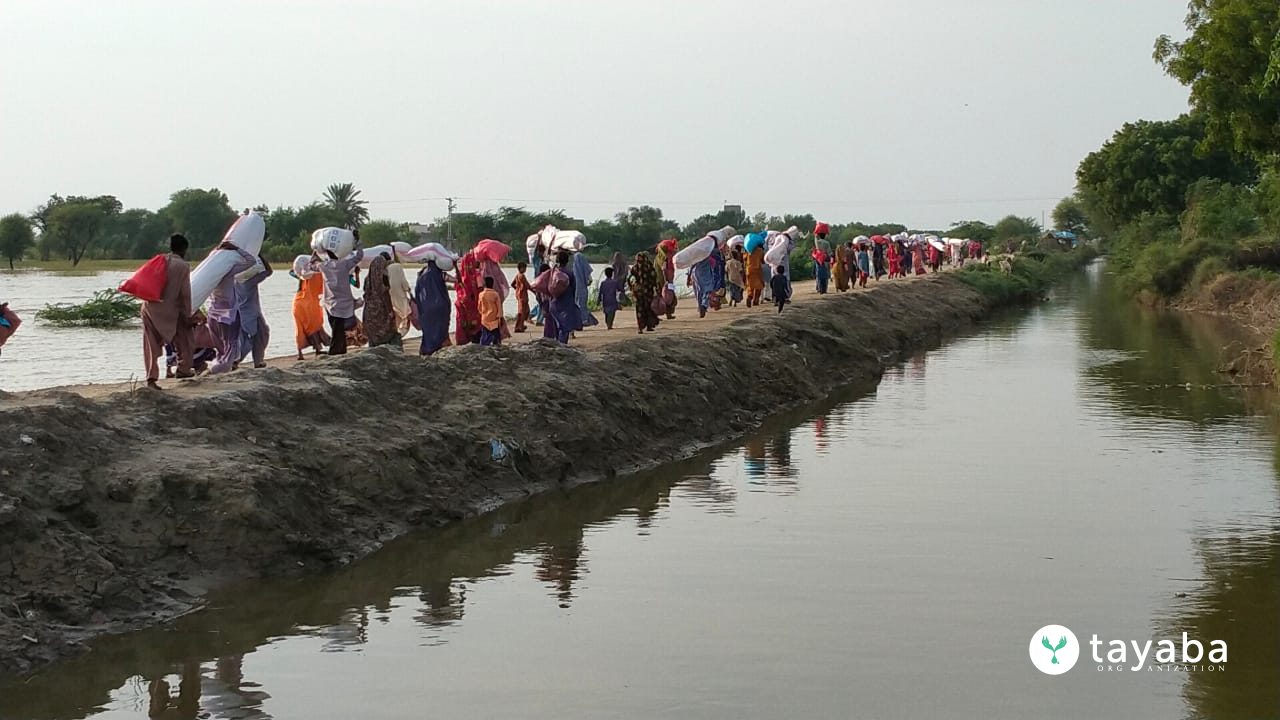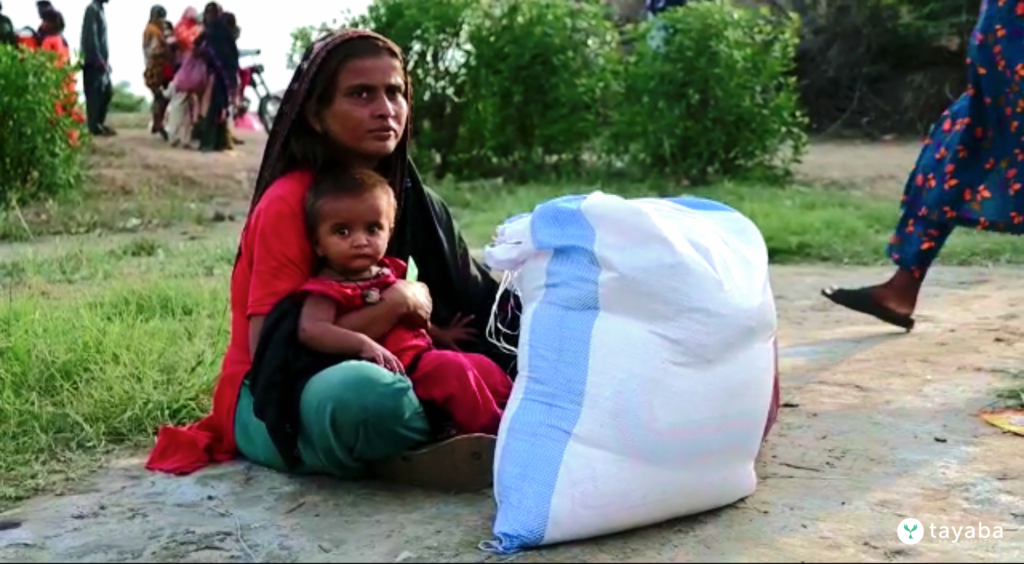Blogs and Articles
Gendered Impact of Natural Disasters
Why females are 14 times more likely to die in Pakistan Floods 2022?

Photo by Tayaba Organisation – All Rights Reserved
Natural calamities can prove disastrous for all humankind, but the pre-existing gender inequalities often mean that females face additional hindrances in surviving them. It is a well-researched fact that females are 14 times more likely to die in a natural disaster. Pakistan floods are no exception, as numerous cases of discrimination, inequitable access to survival resources, and lack of representation make women far more vulnerable.
Owing to the socio-cultural norms of Pakistan, there is a considerable difference in the facilities and opportunities accessible to the different genders. Females’ mobility is often limited in the country’s primarily male-dominated society, especially women living in traditional settings are typically bound within their homes and have limited access to survival training and tools. Hence, when disaster strikes, ruining their homes, they are left helplessly dependent on their male counterparts for income and survival. Even employed women often become financially dependent since females are more likely to lose their source of income during disasters. According to UNDP (2022), women’s employment is 19% more endangered than men’s, post-natural disasters. Furthermore, research shows that females are less likely to have access to internet devices or mobile phones, which means in case of an evacuation warning, many females will stay unaware unless a male household member informs them!

Photo by Tayaba Organisation / Emmanuel Guddu- All Rights Reserved
The persisting gender differences are aggravated during disaster situations, resulting in additional hindrances for females while accessing aid and relief. It is pertinent to acknowledge that the patriarchal culture and societal norms continue to govern the household dynamics, even in relief camps. For instance, females are usually under-represented, and male heads of family are often prioritised while receiving aid.
An aid distributor shared that if one bed or mosquito net is available, it is claimed by the male household members.
As a result, the female’s population chances of survival are inevitably lowered; they are more vulnerable to waterborne diseases, dehydration, malnutrition, and other health problems as they have limited access to lifesaving resources.
A significant reason for the under-representation of females in relief operations and the lack of gender-sensitive relief is the gender bias in data collection. Often, families are registered under the male head of the family’s name, who is contacted to access information for needs assessments or aid distribution. Consequently, females’ specific needs will not be highlighted, as naturally, males tend to communicate issues with respect to their own gender. Moreover, any assets or legal identification documentation are usually registered under the male’s name, creating additional challenges for widowed or divorced women in accessing aid. This also means that women are not considered crucial stakeholders in decision-making during resource management, even though traditionally, women are largely responsible for managing household affairs and can hence sustainably optimise resources.

REUTERS/Amer Hussain (in Dera Allah Yar, district Jafferabad, Balochistan, Pakistan August 25, 2022.)
Perhaps the most direct discriminatory impact of natural disasters is on women’s physical and psychological health. Research shows that due to a lack of privacy and security from male survivors in relief camps, women are unable to exercise usual sanitation activities, leading to discomfort and increased menstrual and basic health problems.
” While men can do it anywhere, we do not have a proper area to shower or defecate! ” – A female flood survivor residing in a relief camp shares her grievance.
Many such women experienced health complications during the 2010 floods. Especially women who are pregnant or lactating struggle to attain a hygienic environment and privacy. In addition, there is a sharp rise in cases of domestic and sexual violence and human trafficking in the crowded and stressful setting of relief camps, which are mostly underreported.
The question arises, how can the vulnerable female gender be protected and supported? Prioritizing females in relief campaigns and policymaking can be the first step in making Pakistan a disaster-resilient nation for all.
Written By: Mishaal Zainab
The author of this article is a content associate at the Tayaba Organisation and the opinions reflected in this article are research-based which do not necessarily reflect the views and policies of the Tayaba Organisation.
Published on 13 October, 2022
